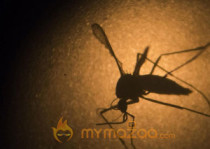In a significant step towards developing an effective Zika vaccine, scientists have found that two experimental vaccines were able to protect mice against the deadly virus.
A singe shot of either of the two types of experimental Zika vaccines, a DNA vaccine and an inactivated virus vaccine, can completely protect mice against two strains of the mosquito-borne disease, according to a new paper published in the journal Nature.
"These two vaccine candidates both provided complete protection against Zika virus challenge in mice," said study author Dan Barouch, a virologist at Beth Israel Deaconess Medical Center at Harvard Medical School. "To the best of our knowledge, this is the first report of Zika virus vaccine protection in an animal model. The protection was striking."
Researchers also found that antibodies taken from immunised mice could be used to protect other, unvaccinated mice, offering proof that the antibodies produced by the vaccines were specific to Zika.
With this development, tests in humans could begin in months.
We need to be cautious about extrapolating data from a mouse model into humans," Barouch added.
The vaccine candidates described in Nature are not the only Zika vaccines being developed.
Zika has been spreading across Central and South America and, most recently, Africa.
Zika virus has been linked to microcephaly - a condition in which an infant's head is significantly smaller than the heads of other children of the same age and sex.
The scenario has grown so bad that on February 1, the World Health Organisation (WHO) declared Zika a global health emergency.
The Zika virus is transmitted from human to human by the bites of infected female mosquitoes, primarily Aedes aegypti and Aedes albopictus
It has been discovered that Zika can also be transmitted through sexual intercourse, oral sex and deep kissing.











